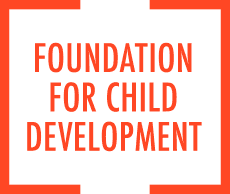All Resources Resources (cont'd)
Page 19 of 39
- Teacher Quality in Grades PreK-3rd: Challenges and Options
The New America Foundation recommends that Congress expand NCLB to cover Prekindergarten teachers.
June 17, 2010 • Read MoreReady to Teach?: Providing Children With the Teachers They DeserveTo reframe the debate about what constitutes a highly qualified teacher, the Foundation for Child Development invited a group of education leaders to participate in a round table discussion about what teachers should know and be able to do. The result, Bridging Two Worlds: PK-3 Teachers As Architects of Children’s Learning, is the centerpiece of the Foundation’s 2006 Annual Report.
June 17, 2010 • Read MorePreparing Early Childhood Teachers to Successfully Educate All ChildrenTwo papers from the Erikson Institute show that state-based teacher preparation standards and teacher education programs do not adequately address the developmental and educational needs of diverse groups of children.
June 17, 2010 • Read MoreClosing the Achievement Gap Through Expanded Access to Quality Early Education in Grades PK-3This brief summarizes research on the benefits of PK and PK-3. It also makes specific recommendations on what the federal government can do to promote PK-3. Visit New America Foundation Early Education Initiative.
June 17, 2010 • Read MoreThe School Readiness GapIn the Harvard Education Letter, Michael Sadowski reports that Prekindergarten, not just preschool, may be the key to narrowing disparities in achievement by race, ethnicity, and income.
June 17, 2010 • Read MoreEarly Academic Achievement of Hispanics in the United States: Implications for Teacher PreparationHispanics account for over one-fifth of newborns in the United States, and Hispanic children, on average, achieve at much lower levels from kindergarten forward than the non-Hispanic white majority and Asian Americans.
June 17, 2010 • Read MoreEarly Childhood Education of Hispanics in the United StatesThis paper describes what is currently known about early childhood education for Hispanic children in the United States and suggests what can be done to help Hispanic children to start school prepared and to be academically successful during the primary grades.
June 17, 2010 • Read MorePK-3: What Is It and How Do We Know It Works?The Foundation for Child Development’s Advancing PreK-3rd Series No. 4 This Policy Brief describes the five components of PK-3 based on analyses of data from longitudinal and nationally representative research.
June 17, 2010 • Read MoreSign up for The Learning Curve
Stay up-to-date with the latest resources and insights coming from the Foundation for Child Development and its colleagues. We do not share or sell email addresses or any other information collected to outside parties. We will use your email address only to send you relevant content, and you can unsubscribe at any time.
